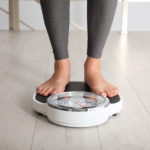By David Blyweiss, M.D., Advanced Natural Wellness
First it was the appendix. Then the tonsils. Now it seems that many conventional doctors are more than happy to throw yet another body part out the window!
This small organ in question causes many folks plenty of pain and suffering every year. Especially if you’re overweight, over 40, and female. It’s unusual that something so small—just over 3 inches long—causes so many problems. But most people don’t need to get rid of it to feel better.
I’m talking about your gallbladder. The truth is, it’s not a throw-away organ… Despite what some doctors are saying these days. It actually serves a rather important purpose when it comes to healthy digestion.
Your gallbladder acts as a storage tank for bile. The bile is released as needed into the small intestine to help break down fat. The gallbladder also releases toxins that have been metabolized by the liver so they can make their way to the bowels and out of the body.
Open your arteries, improve blood flow for a new health miracle...
Did you know your circulatory system has over 60,000 miles of arteries, veins and other blood vessels, if stretched end to end?
But as you age, your blood vessels undergo changes, which may cause them to stiffen, thicken and get clogged.
GOOD NEWS! Doctors have now identified a “Miracle Molecule” inside your arteries that helps OPEN your arteries and IMPROVE blood flow.
It’s what Dr. Valentin Fuster calls it, "One of the most important discoveries in the history of cardiovascular medicine."To you, that means...
- Healthy blood pressure
- Sharper mind and memory
- Skyrocketing energy and muscular strength
- Increased pleasure and passion in the bedroom
- Improved circulation to every cell and organ in your body
Go here to discover a new natural way to significantly boost the levels of this miracle molecule in YOUR body NOW!
Things can go wrong when this fat-busting, toxin transporting bile becomes over-saturated with cholesterol from the diet or from the body’s natural production. When this happens, the bile salts can’t keep cholesterol in a liquid form. In time, this leads to the formation of gallstones that can be as small as a pea or as large as a golf ball.
If gallstones are small enough, they may pass painlessly from the gallbladder into the intestines and out of the body.
But if stones are bigger or if you have a lot of them, they can cause abdominal pain or inflammation of the gallbladder wall. Larger stones can lodge in the bile duct leading out of the liver or in the narrow opening of the duodenum (at the start of the small intestine). This blockage causes bile to back up into the pancreas.
The World's Quickest Solution for Ending Prostate and Urinary Misery
This has recently been revealed to be one of the only real breakthroughs in prostate health.
The seeds of a strange fruit (sometimes called "Chinese Apples") hold powerful phytonutrients that are a revolution in prostate health.
In fact, UCLA and Veterans Administration research have now proved this to be true.
Not only that, but it may be the worlds quickest solution for ending prostate misery.
Simply stated, these phytonutrients represent a huge step beyond beta sitosterol, saw palmetto, and other phytosterols alone.
Simply click HERE if you want to have fast prostate relief...restful, uninterrupted sleep...no more constant "urges to go"...enhanced virility...and optimal prostate support for life.
And this can lead to pancreatitis, a life-threatening inflammation of the pancreas.
If gallstones are chronic or severe, surgery to remove the gallbladder is probably necessary. But, in many cases, prevention is possible—and it starts with your diet.
Here’s what I tell my patients who are prone to gallstones:
Go vegetarian—or at least cut back on the amount of meat you eat. The culprit in meat is saturated fat. Fat increases cholesterol, the raw material from which gallstones are made. But there’s another reason to eat less meat. Meat provides heme iron, which seems to boost the risk of gallstones.1 Reduce your meat consumption to no more than two 3-ounce servings a week and opt for egg whites, beans and organic soy for most of your protein.
Eat more greens. Kale, Swiss chard, spinach, and other leafy greens help protect against gallstones. Not only do greens offer lots of healthy fiber—which lowers cholesterol—they also produce enzymes that help digest fat. Other foods that reduce the risk include citrus fruit, strawberries, papaya, peppers, broccoli, and cauliflower.
Lay off the carbs. Eating pasta, bread and other high-glycemic-index carbs increases gallstone risk by boosting the body’s insulin production and increasing the cholesterol content of bile. According to a study published in Surgery, a diet made up of 75% carbs from refined grains and sugars appears to increase risk of gallstone formation. This is compared with a diet containing 45% carbs.2 That’s why it’s so important to load up on fruits, vegetables, and legumes for healthy carbohydrates.
Drink plenty of water throughout the day to keep hydrated—this can help keep the bile in your gallbladder fluid.
Shed pounds if you need to—but not too quickly. Crash dieting can lead to the formation of gallstones.
Take 1,000 mg of vitamin C daily. In one study, people with higher blood levels of vitamin C were half as likely to develop gallstones as those with lower levels.3
Try lecithin. This B vitamin promotes bile solubility (meaning it increases absorbability into another substance) and just might prevent the formation of gallstones. Lecithin granules are available at most health food stores. Take 1 rounded tablespoon (500 mg) in applesauce, yogurt, or oatmeal every day.
Opt for enzymes. For those times when fatty foods are unavoidable, take digestive enzymes. The enzyme that helps digest fat, which is produced primarily in the pancreas, is called lipase. Many digestive enzyme supplements contain lipase along with a variety of other enzymes to foster good digestion.
So before you let a surgeon remove your gallbladder, give these strategies a try. At the very least, get a second opinion. It just might help you hang onto your original equipment!
References:
- Tsai CJ. Heme and non-heme iron consumption and risk of gallstone disease in men. American Journal of Clinical Nutrition. 2007;85:518-522.
- Abhishek M. High dietary carbohydrates decrease gallbladder volume and enhance cholesterol crystal formation. Surgery. 2007;141: 654-659.
- Walcher T. Vitamin C supplement use may protect against gallstones: an observational study on a randomly selected population. BMC Gastroenterology. 2009;9:74A






